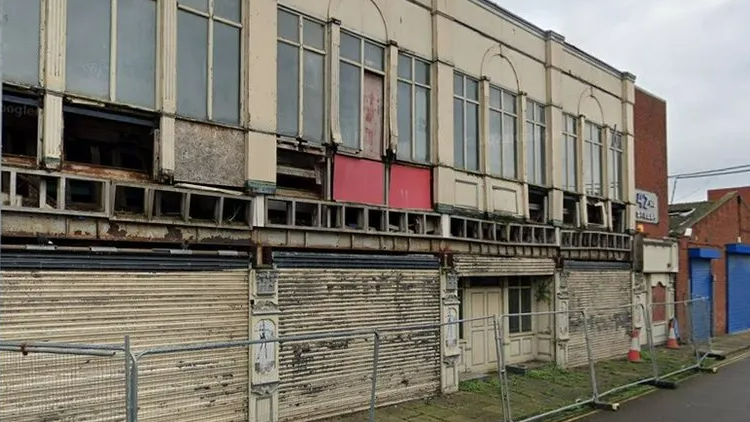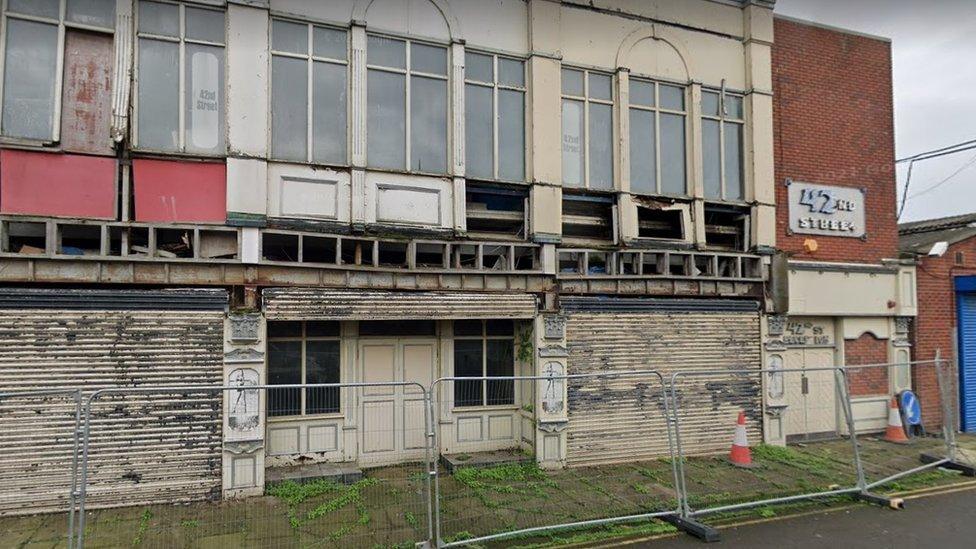Council calls for empty properties law change

Derelict properties can attract squatters and inspire a "fear of crime", a report said
- Published
A "carrot and stick" approach to developers and property owners could help a council tackle a large number of empty buildings, a report has concluded.
Hartlepool Council's investigation found about 2,000 properties in its borough were empty last year.
The investigation is a first step towards a "far more aggressive strategy for dealing with derelict land and buildings" in the town.
The council's audit and governance committee made a series of recommendations, from calling for a national law change to refusing to work with developers who have empty properties.
The Derelict Land and Buildings Investigation report, published earlier this month, said almost 5% of dwellings in the borough were empty, with 85% of those privately owned.
Most are in Hartlepool's town centre and risk becoming a "catalyst for crime and economic or social degeneration", the report said.
But the process to bring them back into use is "lengthy and costly" under current legislation and there is no "one size fits all solution", committee members found.
Reduce crime
The report suggests methods that could be used to tackle the problem, ranging from incentives such as grants or loans to bring properties up to scratch, to sanctions including prosecutions and compulsory purchase orders.
The council could also refuse to work with developers who have derelict land and properties in the town, the report said.
Factors contributing to the problem include estates belonging to deceased people, insurance claims, ownership disputes, properties not in a saleable condition and low demand.
The report reflected the committee's shock at learning some owners "were making the conscious decision to leave properties empty".
Bringing them back into use would boost the local housing market, reduce the risk of crime and enhance the "viability and vitality" of the area, it said.
Recommendations for future action include:
Calling on the government to review "complex" national legislation and policy
Expanding the range of incentives and sanctions available to the council
Establishing a tenant support scheme or re-establishing a landlord licensing scheme
Supporting and encouraging business owners to bring properties back into use
Increasing council tax liability for empty commercial properties and land
Developing a specific empty homes strategy
Considering triggering earlier enforcement action
The BBC has approached the government for comment.
Follow BBC Tees on X (formerly Twitter), external, Facebook, external and Instagram, external. Send your story ideas to northeastandcumbria@bbc.co.uk.
Related topics
More stories from BBC North East and Cumbria
- Published30 July 2023
